What 5 Factors Determine the Value of a Brain Injury Settlement

When it comes to traumatic brain injuries, a settlement amount can vary greatly depending on the type of injury and its severity. In addition to the initial medical expenses resulting from the TBI, future medical costs, lost income, pain and suffering, emotional distress, and other damages may factor into an overall settlement value.
It is important to consult with a knowledgeable attorney who has experience handling TBI cases to get an estimate of what kind of settlement you might reasonably expect for your case. An attorney will be able to review all relevant evidence such as accident reports, witness statements, medical records, doctor notes, and more to present the best case possible on your behalf. Your lawyer will also be able to negotiate with insurance companies and other responsible parties to secure you the highest possible settlement for your injuries.
It is essential that your attorney has a thorough understanding of the legal process and can effectively communicate with all involved parties. You should also ensure that they understand the nuances of TBI cases so that they can fully maximize any settlement value or verdict outcomes.
With qualified legal representation that specializes in brain injury cases, you can rest assured that you will receive the best outcome available for your situation. Seeking justice and fair compensation following a traumatic brain injury can help provide stability in an uncertain time, allowing you to focus on healing without worrying about how you will pay for it.
Full recovery may not always be possible after a TBI, but you can take steps to ensure that your rights are respected and that you receive the highest worth of compensation for your case. Contact a trusted injury attorney today to find out more about the potential settlement value in your traumatic brain injury or TBI case.
When it comes to personal injury settlements, every case is unique. As a result, there is no single formula for determining the number of damages you may receive. However, several factors can influence the total settlement value.
The severity of your injury and the way it has impacted your life are key considerations in any personal injury claim. If you sustained serious injuries that result in long-term repercussions or disabilities, you will likely be entitled to greater compensation than someone who only suffered minor bruises or cuts. Additionally, if your medical bills and lost wages exceed what would typically be expected in a similar case, then this too could factor into a higher settlement amount.
Another element that affects settlement amounts is the characteristics of the victim. In some cases, the at-fault party may be more likely to pay a larger settlement if the person injured was not at fault, such as an innocent bystander or child.
The value of your non-economic damages is also important in determining the amount of a settlement. This damage can include pain and suffering, emotional distress, or loss of enjoyment due to the injury. The jury must determine how much these intangible losses are worth and award you accordingly.
Depending on the circumstances of your case, you may also be awarded punitive damages. This type of compensation is intended to punish wrongdoers for their negligence or recklessness, rather than simply compensate you for your injuries. Since punitive damages vary greatly from case to case, they can significantly affect the total settlement amount.
Finally, the financial position of the at-fault party is one of the most important factors in determining a settlement amount. If they carry adequate insurance coverage and have strong financial resources, it may be possible to receive a higher settlement than if the party had limited or no insurance coverage.
In summary, while it is hard to provide an average settlement amount for personal injury cases due to their varied nature, several key factors influence the final value of a claim. These include the severity of your injury, your non-economic damages, punitive damages eligibility, and the financial position of the at-fault party. By understanding these considerations and gathering evidence to support your claim, you can increase your chances of receiving a fair settlement.
Will the severity of a brain injury affect settlement amounts?
In New Jersey, the severity of a brain injury can have a significant impact on the settlement amount in a personal injury case. The more severe the brain injury, the higher the number of damages that the injured party may be entitled to receive. For example, those suffering from traumatic brain injuries such as concussions, hemorrhages, and contusions may receive compensation for medical costs and lost wages due to missed days at work or school. These individuals may also be eligible for punitive damages in addition to their compensatory claims if somebody else’s negligence caused their injury.
More serious types of brain injuries may result in long-term damage or permanent disability. In these cases, courts often award substantial sums to cover ongoing medical treatment expenses, rehabilitation costs, and lost wages due to a decreased earning capacity. In addition, non-economic damages such as pain and suffering may be awarded if the injury has caused permanent or long-term impairments.
Given the severity of brain injuries and their potential lifelong effects, individuals involved in personal injury cases should consult with an experienced attorney who can help them understand their legal rights and receive a fair settlement amount for their claim. An attorney can also ensure that all expenses associated with the injury are included in the settlement to provide adequate financial protection in case of any future medical needs. Having an informed advocate on your side during this process will help you get through it successfully while also ensuring that your rights are protected throughout every step.
Will settlement figures vary depending on the characteristics of the victim?
The amount of settlement in a traumatic brain injury case in New Jersey can vary greatly depending on the specific circumstances and characteristics of the individual victim. The severity of the injury, age at the time of the incident, pre-existing medical conditions, as well as other factors such as lost wages and physical or emotional pain and suffering all play a role in determining a potential settlement value.
The long-term consequences of TBIs are often devastating for victims and their families. As such, any compensation that can be recovered through a successful lawsuit should carefully consider not only current damages but also future projected costs associated with the injury over time. This may include costs related to additional surgeries or treatments, specialized educational needs due to cognitive deficits, assistive technologies, lost wages due to inability to work, emotional distress, and more.
In addition, the quality of care received by the victim before and after the incident can also have an impact on the amount of a settlement. The cost of quality medical treatment over time can be substantial, as can be costs related to disability accommodations or other modifications that may be needed for everyday life following a TBI.
The local law firm representing the victim in this type of lawsuit should thoroughly review all factors associated with the injury to determine what type of compensation is fair and reasonable given the circumstances. Ultimately, each case is unique, and settlements will vary depending on individual characteristics and details surrounding the traumatic event itself.
How do non-economic damages come into play?
Non-economic damages in a New Jersey Traumatic Brain Injury (TBI) case refer to physical pain and suffering, loss of enjoyment of life, as well as emotional distress. These damages are also known as general damages, special damages, or intangible losses. They are typically used in TBI cases to compensate accident victims for the various hardships endured due to the injury.
To calculate non-economic damages, a court must assess the victim’s medical bills and other related economic losses resulting from the injury. The court will then use these figures to estimate the amount of compensation that should be awarded based on the severity of the injury and its effects on the victim’s quality of life. This estimation is often based on factors such as the severity of the injury, the extent of physical and mental anguish suffered by the victim, the duration of treatment, and the impact on the sense of well-being.
Non-economic damages can be difficult to calculate since they are intangible losses that are not tied to any economic harm or expense. It is important to note that these types of losses may be permanent or temporary, and it is up to the court to decide how much compensation should be awarded for each case.
Non-economic damages provide recognition for accident victims who have been affected by a traumatic TBI experience. By understanding the law surrounding non-economic damages applicable in New Jersey, victims can more easily pursue justice for the physical and emotional harm suffered.
What about punitive damages?
In New Jersey, punitive damages are awarded to punish the responsible party for their intentional wrongdoings and to deter similar conduct in the future. Punitive damages are only applicable when there is conclusive evidence that the defendant acted maliciously or recklessly, such as when a traumatic brain injury (TBI) was caused by gross negligence.
A court may award punitive damages if it can be proven that the defendant knew of potential risks associated with their actions but chose to ignore them regardless. The number of punitive damages awarded is typically much higher than compensatory damages, which are meant to help restore victims to their previous condition. This appears to be an appropriate deterrent given that TBIs can lead to severe psychological and physical consequences for both patients and their families.
In New Jersey, punitive damages are typically calculated based on the defendant’s net worth. When awarding punitive damages, the court considers the total amount of money and assets owned by the defendant. The more extensive a person’s wealth, the higher the risk to them if punitive damages are awarded. This further serves as a deterrent for companies and individuals who may be tempted to act negligently or with disregard for public safety to save money or time.
In summary, when it comes to TBI cases in New Jersey, courts can award punitive damages as an additional form of compensation if there is conclusive evidence that the injury was caused by gross negligence or reckless behavior on behalf of the responsible party. This serves to punish the defendant and deter similar behavior in the future. The number of punitive damages awarded is typically much higher than compensatory damages and may be based on the defendant’s net worth.
Overall, punitive damages are meant to send a strong message that those who engage in negligent or reckless behavior will be held liable for their actions and should be taken seriously by both individuals and companies alike. Victims of TBIs must have access to such compensation as it can assist them with any lingering medical costs or effects from the injury. As a result, punitive damages play an important role when it comes to seeking justice for those affected by traumatic brain injuries in New Jersey.
Can the financial position of an at-fault party affect settlement values?
The financial position of the at-fault party in a New Jersey traumatic brain injury (TBI) case can indeed play a role in the ultimate settlement value. The primary consideration is whether the at-fault party has enough insurance coverage to pay compensatory damages, which are intended to cover victims’ medical bills, lost wages, and other related losses.
If they do not have sufficient coverage, then their assets may be used to help supplement what would be paid out. In cases where the liable party does not have enough resources to pay for all the victim’s losses, it may make sense for both parties to reach an agreement on a lower settlement amount rather than facing an uncertain outcome at trial.
Furthermore, the financial situation of the at-fault party may affect punitive damages. Punitive damages are intended to punish wrongdoers and discourage others from engaging in similar acts of negligence. Depending on their assets, a liable party may not be able to pay out the full amount awarded by a jury, so it would be beneficial for the victim to try and negotiate a settlement before trial that accounts for these potential limitations.
Ultimately, the financial position of an at-fault party in a New Jersey TBI case can affect the final settlement value, though it is just one factor among many that should be taken into consideration when attempting to reach an agreement. Professional legal guidance can help ensure victims receive fair compensation for their injuries and losses.
It is important to note that even if the at-fault party does not have sufficient assets or insurance coverage for a fair settlement, victims of traumatic brain injury still have legal recourse. An experienced New Jersey personal injury attorney can help explore other sources of compensation, such as filing a claim against the wrongdoer’s employer or seeking out other responsible parties who may be held accountable under theories of vicarious liability. With appropriate representation, victims of TBI can fight for the full and fair compensation they need to make their recovery easier during this difficult time.
Related Blogs
No Fee Unless
GGL Wins
We've got you covered.
We are available 24/7/365
One of our advisers will contact you.

OFFICIAL PARTNER OF RUTGERS ATHLETICS



Recent GGL Wins
Auto Accident
Mediation award Plaintiff was injured in an intersection motor vehicle collision resulting in neck and lower back fusion surgeries.
$2 Million
Verdict
Workers Compensation
25-year-old laborer died in an industrial accident while working.
$1.15 Million
Verdict
Construction Accident
Roofer fell off roof causing head trauma resulting in a head injury. Plaintiff was not given fall restraint protection equipment by contractor.







